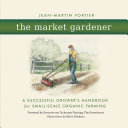Instant Insights: Improving crop nutrient use efficiency
About this ebook
The first chapter explores the relationship between rhizobacteria and plant roots, looking primarily at the recruitment of rhizobacteria by the plant to carry out particular functions, such as nutrient acquisition. The chapter highlights our current understanding of the molecular determinants of legume nodulation as well as challenges for improvements of biological nitrogen fixation in legumes and non-legumes.
The second chapter considers the rising use of nitrogen (N) fertilizer in agriculture and its role in the shrinking contribution of soil organic N. The chapter explores the impact of the inefficient management of N (low nitrogen-use efficiency) and the consequent developments of major environmental issues, such as pollution to groundwater, oceans and the atmosphere.
The third chapter addresses key issues in using N fertilizers in wheat production, such as product cost and environmental impact. The chapter summarises the development of N-efficient cultivars and their economic benefits, as well as their role in reducing the environmental impact of excessive N fertilizer inputs, whilst maintaining respectable yields.
The final chapter considers the use of breeding techniques, including genetic variability, to develop more efficient wheat varieties with improved traits related to nitrogen capture, nitrogen assimilation and nitrogen remobilization.
About the author
John Angus graduated B. Agr. Sc. and PhD from the University of Melbourne. He worked as a Research Scientist at CSIRO Canberra from 1973 until 2010, with visiting scientist positions at the International Rice Research Institute and the Swedish University of Agricultural Science along the way. After retirement he remains an honorary fellow at CSIRO and is also an adjunct professor at Charles Sturt University in Wagga Wagga. He is a fellow of the Australian and American Societies of Agronomy and has served as President of the Agronomy Australia. He was the 2006 recipient of the Australian Medal of Agricultural Science and the 2019 recipient of the Colin Donald medal of Agronomy Australia.
Professor Malcolm Hawkesford is head of the Plant Sciences Department at Rothamsted Research and leads the Institutes contribution to the UK Designing Future Wheat strategic research programme. He is a Honorary Professor in Plant Sciences in the School of Biosciences, University of Nottingham. He is an investigator on multiple international programmes with Brazil and India, is a lead investigator in the Defra-funded Wheat Genetic Improvement Network, participates in multiple BBSRC-funded projects aimed at optimizing resource use in wheat and is the lead scientist for major wheat GMO field experiments at Rothamsted. He is chair of the Nutrient Use Efficiency Expert Working Group of the International Wheat Initiative.








